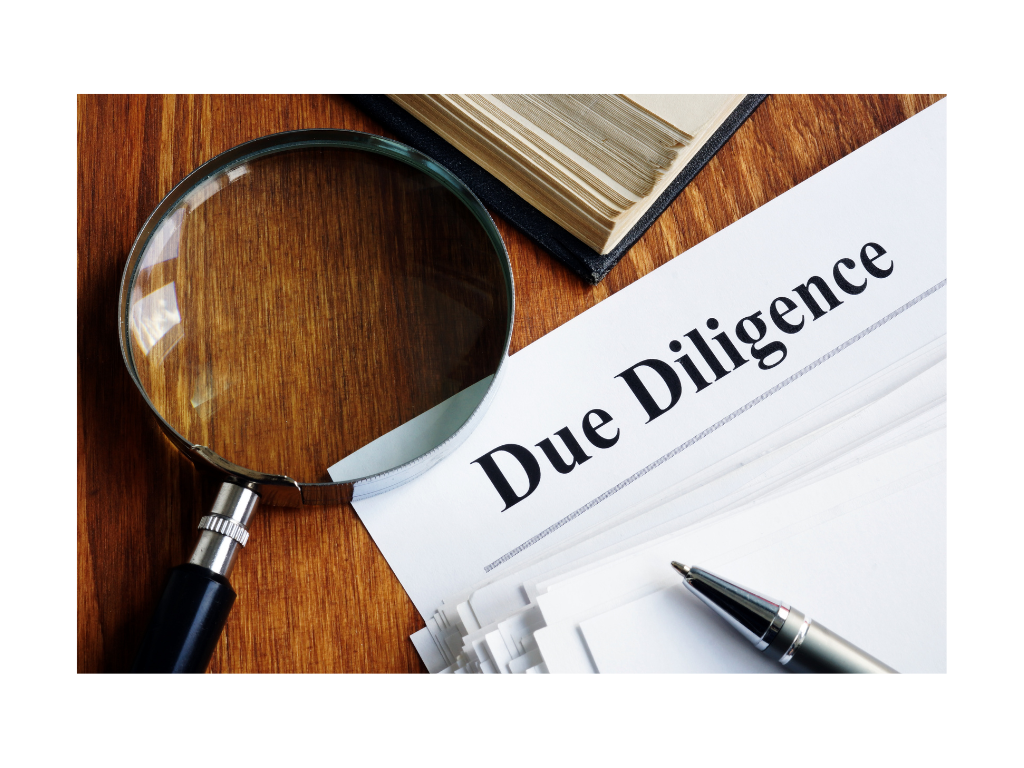Doing Your Due Diligence to Protect Your IRA
Due diligence is one of the more important steps you can take to mitigate risk with your investments.
Posted on September 14, 2023

What is Due Diligence?
Due diligence is the step-by-step process an investor takes to help protect their IRA from fraud and to determine if it is the right investment for their retirement funds. Due diligence is what forces you to uncover the facts about the investment and any potential risks, so you can make an informed decision. There are two types of due diligence: that which is done on the investment itself and the other which involves thoroughly vetting the one offering the investment.
It’s crucial to not only look at the investment itself and determine if it is worth it, but to also consider who you may be entering into business with, as well. Sometimes you may be confident in the investment, but still have hesitations about the investor. If you are ever nervous, you should always investigate further.
Why is Due Diligence Important?
It is important to be more cautious when you are investing your IRA funds. Doing due diligence ensures that you don’t make the wrong decision and jeopardize your future retirement. One bad investment could greatly affect your retirement savings.With self-directed IRAs, you can invest in real estate, notes, private placements and more, so it is even more important to perform due diligence on these types of alternative investments. When you invest in a mutual fund, you can look at the prospectus and view the fund's history. When you invest in alternative assets, you are in the driver's seat. The IRA custodian is not allowed to provide tax, legal, or investment advice. You find the deal, usually through networking, and it's up to you to thoroughly vet the investment. You may be approached with an investment opportunity that sounds amazing, but what do you really know about this potential real estate investment or the sponsor that is pitching the deal to you?
The reason investment fraud succeeds is because people are lured into emotional decisions by the scammer without first completing their due diligence. Investing in things you are familiar with and know very well can help lessen the risk of fraud, since you will be very aware of what to look out for. For example, if you are a real estate professional, you can use your experience to invest in rental properties.
Doing Due Diligence
The due diligence process begins with asking yourself broad general questions. It then narrows down to specific questions about the investment depending on the type. Asking yourself questions like, "does the investment offer make good business common sense?” or “how exactly does this investment strategy create above market returns?” If you can’t explain it, there’s a risk of fraud.
Top 10 warning signs of investment fraud:
10. The pitch comes with high-pressure sales tactics that push you to purchase immediately.
Ask all of your questions and expect straightforward answers. Review financial records if applicable. If you are buying real estate, go to site and view it yourself. Do not let trust, friendship, or emotion get in the way. When you do not understand the investment, continue to ask questions until you do. This is your money, and you should feel comfortable with your investment decision.
Once you have evaluated the investment, it is then time to evaluate who you are entering business with. What is the track record of the person pitching the investment? Look into the performance of their other investments? Have they been honest and upfront about the risks of this investment. Have they thoroughly answered your questions, or tried to pressure you to act quickly? Look for any red flags and then take the time to investigate them thoroughly. If something sounds too good to be true, it probably is.
It’s true that all investments have risk and there is always a constant battle between risk and reward. If at any point during the process you find that the investment has too great a risk for the amount of return or has a high probability of fraud, then you should stop the process and move on to another investment. Prepare a due diligence checklist to ensure that you did not miss asking any important questions.
The more you know about the investment the better you will be able to judge whether the risks are balanced by the reward and whether investment fraud could be possible. If you ever have questions about doing your due diligence or investing in your self-directed IRA, give a Quest Trust Company a call at 855-FUN-IRAS. To learn more about how to get started investing with a self-directed account, schedule a 1-on-1 consultation with an IRA Specialist by clicking HERE.








